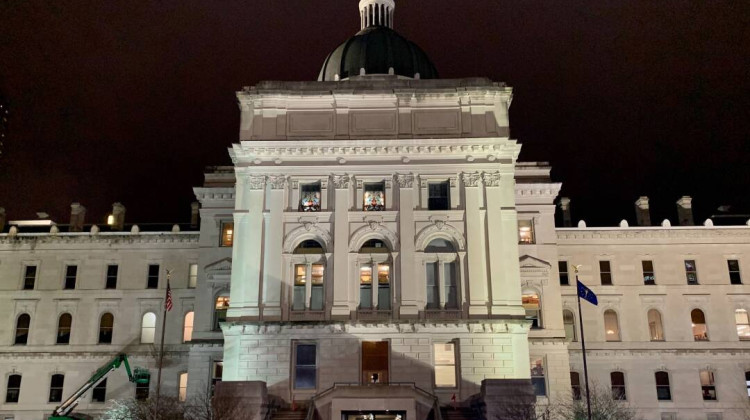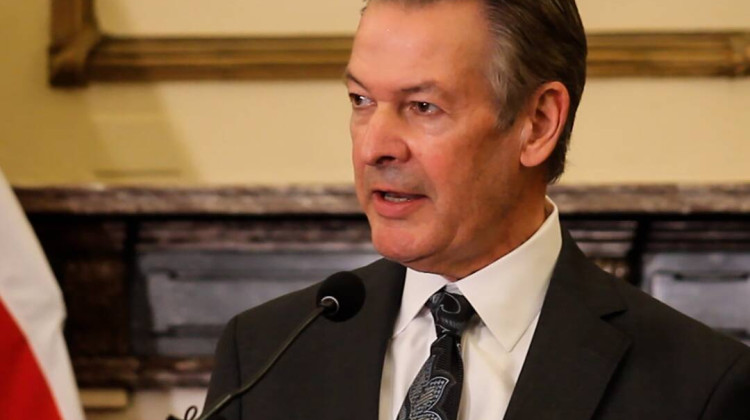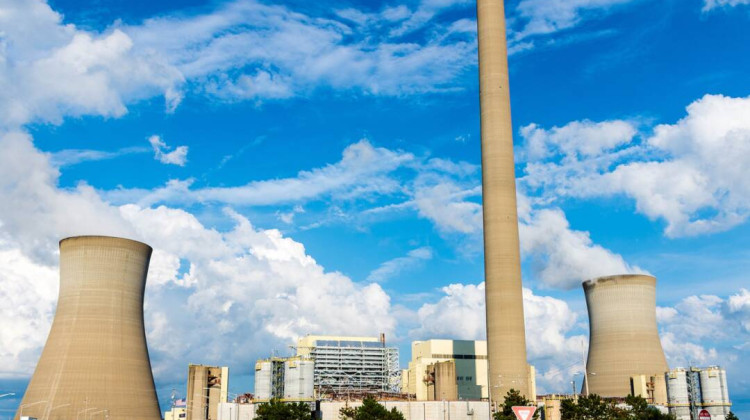
A 2019 Chevrolet Bolt EV, built off of General Motors' automotive platform. GM, which has a plant in Fort Wayne, has committed to making 40-50 percent new electric vehicles by 2030.
Gregory Varnum/Wikimedia CommonsPresident Joe Biden signed an executive order to make half of all new cars sold by 2030 electric vehicles. That could have a big impact in Indiana — which is one of the top states for automotive production and for ethanol.
Several automakers were moving toward electric vehicles before Biden’s announcement, but it’s unclear if they can meet that deadline. At least two with plants in Indiana — Toyota and Subaru — won’t have an all-electric car on the market until next year.
Professor Amrou Awaysheh, executive director of the IUPUI Business and Sustainability Innovation Lab, said these manufacturers are already putting the infrastructure in place and making arrangements with suppliers.
Auto parts manufacturers that rely on gas vehicles, however, could see business decline.
“So if you're making a component that is not going to be present in the electric vehicle, right? How—what are you going to be doing as the company transitions towards EVs?” Awaysheh said.
Awaysheh said there’s an opportunity for those companies to switch gears and start manufacturing things like battery technology and battery infrastructure — which will be needed to power cars around the world.
Biofuels aren’t mentioned in Biden’s recent plans. Chris Bliley is with Growth Energy — an association of renewable fuel producers. He said in order for the Biden administration to reach its overall climate goals, ethanol will have to play a role in the new renewable fuel standards.
“Keep in mind, there are, you know, more than 250 million vehicles on the road today that will continue to be on the road for decades to come that will continue to use liquid fuels,” Bliley said.
It’s unclear what effect 50 percent new electric vehicle sales would have on jobs at biofuel refineries in Indiana and Hoosier farmers that grow corn for biofuels.
Growth Energy is urging the Biden administration to invest in biofuels, allow year-round sales of E15 gasoline, and set renewable fuel volumes for the coming years.
Contact reporter Rebecca at rthiele@iu.edu or follow her on Twitter at @beckythiele.
Indiana Environmental reporting is supported by the Environmental Resilience Institute, an Indiana University Grand Challenge project developing Indiana-specific projections and informed responses to problems of environmental change.
 DONATE
DONATE








 Support WFYI. We can't do it without you.
Support WFYI. We can't do it without you.